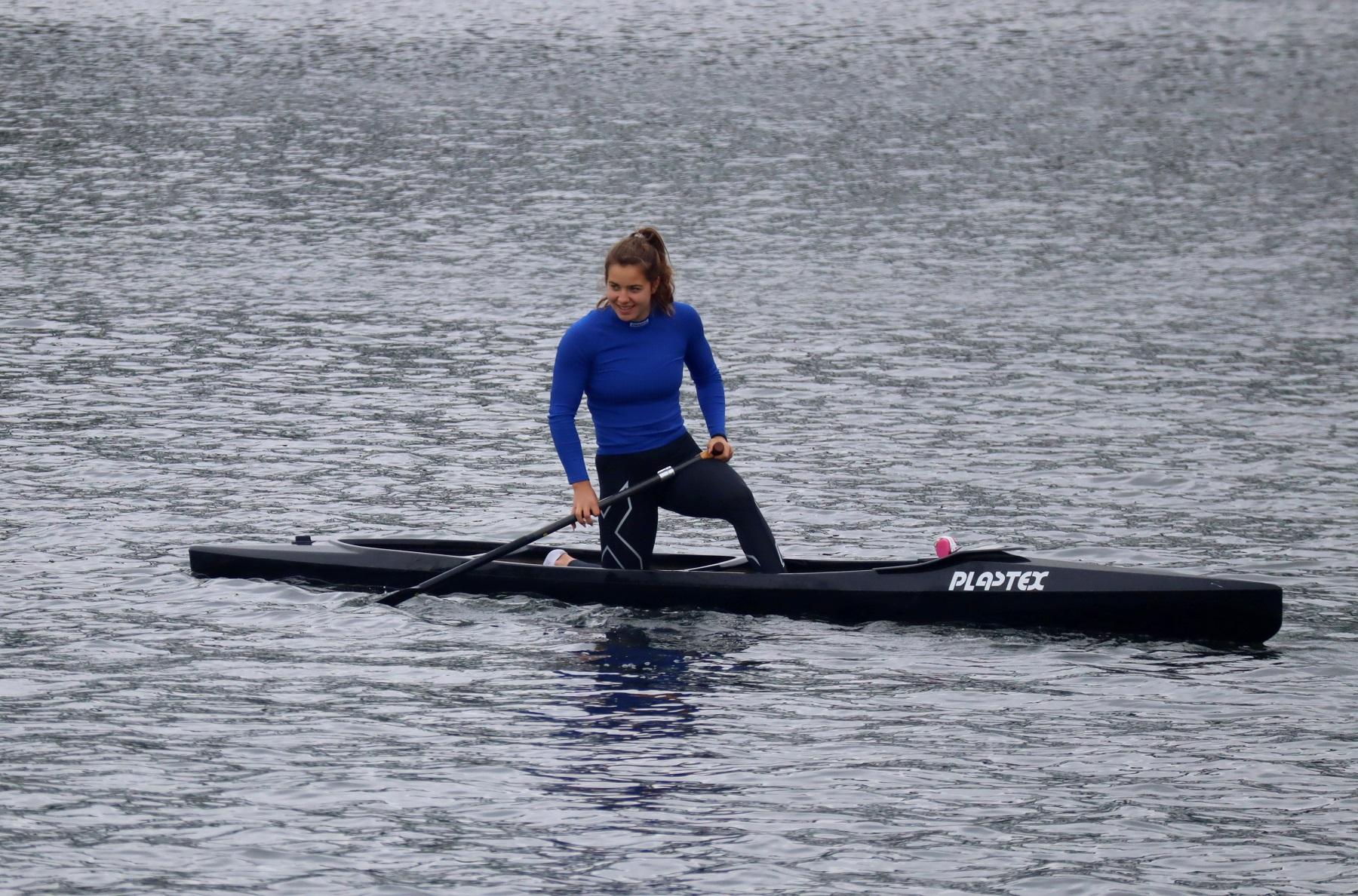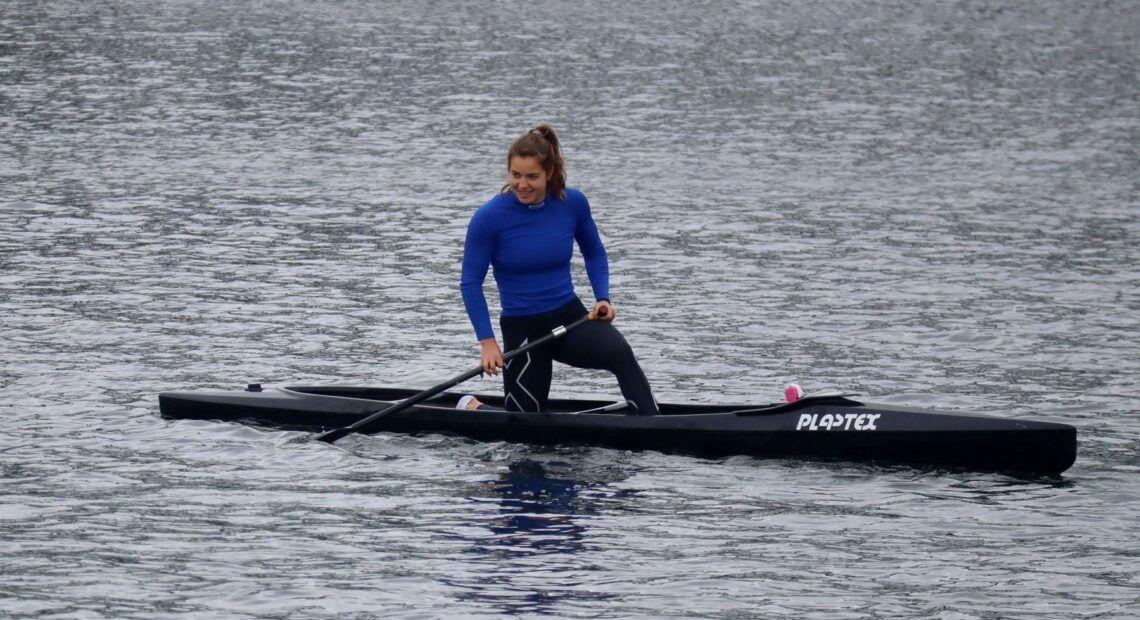
Seattle Athlete To Sprint At Tokyo Olympics, But In A Canoe Instead Of On The Track
Listen
Nineteen-year-old Nevin Harrison of Seattle has pictured herself competing in the Olympics for many years, mostly as a track sprinter like in the 100 or 200 meter dash.
“My mom always tells the story of me being four years old and watching the Olympics and saying, ‘I’m going to go one day, mom,” Harrison recalled. “She was like, ‘Sure, Nevin. Whatever.'”
Later this month, Olympic team trials and Team USA coaches will fill out the roster for the delayed Tokyo Olympics. Some familiar names in women’s soccer from Portland and Seattle, as well as the WNBA Seattle Storm’s biggest stars and a pack of Pacific Northwest-based distance runners are likely Tokyo bound. Some other athletes from this region have already locked in their spots, including Harrison.
When she was in her early teens, Harrison was diagnosed with hip dysplasia, a condition that derailed the hopes of running on the Olympic track.
“It pretty much means my hip sockets are too shallow,” Harrison explained in an interview. “It makes my hips hyper-mobile, so it makes running difficult.”
Now, less than a year out of high school, comes a turn of events even she called kind of “crazy.” Harrison celebrated her official selection for Team USA, bound for the Summer Olympics. She’s still a sprinter, but in a completely different sport.
Harrison qualified for the rescheduled Tokyo Games in canoe sprint, in the women’s solo (C1) 200 meters. Harrison transitioned to canoe racing around age 14-15, having been introduced to the sport earlier at the end of a sailing camp at Green Lake in Seattle.
“On the last day of camp, they let us take out the sprint boats and just try it and I totally fell in love with it,” Harrison said. “It was super challenging, which was kind of foreign to me in sports because I always grew up being pretty athletic. I loved how difficult it was and I really wanted to take the time to try to master it.”
The tippy, racing canoe Harrison launched onto Seattle’s Portage Bay to begin her final block of training looked nothing like the aluminum canoe you may have paddled at summer camp. The competition models are long and skinny like a torpedo with a flat spot near the middle for the racer to kneel.
“Let’s head out towards the (Montlake) Cut,” she recommended to her training partner on a cool, cloudy May morning. “I think it will be sheltered from the wind over there.”
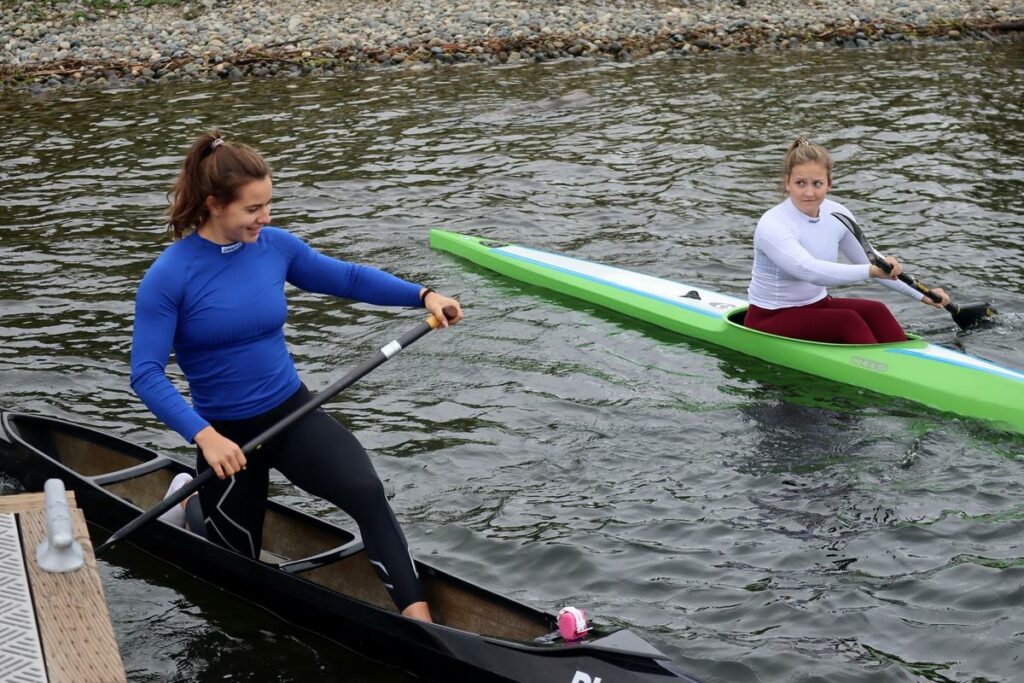
Sprint canoeist Nevin Harrison, left, and kayak racer Anna McGrory head out for a workout in Seattle on May 21, 2021. CREDIT: Tom Banse/N3
Harrison’s hometown training partner is Anna McGrory, a University of Washington sophomore and a kayak racer.
“She is a beast to train with. It’s awesome,” McGrory said.
McGrory marveled at her friend’s rapid progression, going in a few short years from newcomer in international competion to 2019 ICF Canoe Sprint World Championships gold medalist — at the age of 17, no less.
Aaron Huston coached Harrison to that gold medal with the Gig Harbor Canoe and Kayak Racing Team.
“She loves to race. She loves to work hard,” Coach Huston said. “The higher the stakes on the line, she just went faster and faster and each performance got better and better.”
Huston said he realized a rare teen talent had joined his team when she laid down incredibly fast times in a time trial in 2018.
“I thought there must have been some kind of error in the timing,” he said when he saw 21.6 seconds pop up for a 100 meter sprint.
“So we did it again and she got like 21.7,” Huston said in an interview. “So, I knew then that she had a chance to do something really special in the sport.”
Canoe racing by men has been part of the Summer Olympics since 1924. But Harrison has a chance to win the first Olympic gold medal by a female in her event because women’s canoe is on the Olympic program for the first time. It was added as part of a push for gender parity at the games.
“She’s doing something no one has ever done for the (United) States,” McGrory said. “It’s been amazing to watch the ripple effect of how she’s inspired younger paddlers. She has inspired a lot of kids from the U.S. that you can do this.”
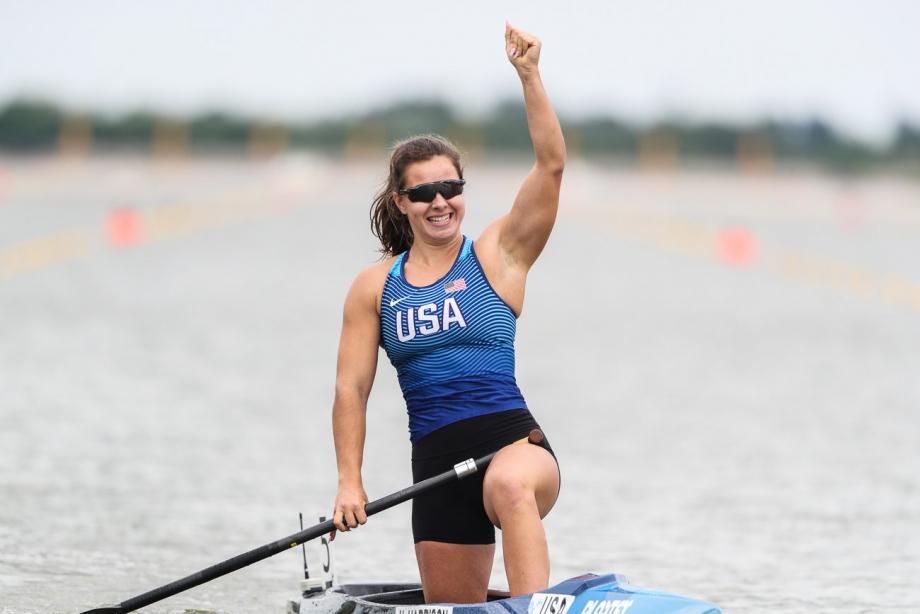
Nevin Harrison celebrates her win at the ICF Sprint Canoe World Cup final in Szeged, Hungary, on May 15, 2021. CREDIT: Canoephotography.com via ICF
McGrory’s discipline, kayaking, has been an Olympic sport for women since 1948.
Harrison said the one year delay in staging the Tokyo 2020 Olympics probably benefits her.
“I’m seeing it as sort of a blessing,” Harrison said. “I don’t think I was ready to compete in an Olympics last year. I’ve had an extra year to train and kind of mature and understand the kind of athlete I want to be. It’s really been incredible. I feel way more ready than I was before. I’m really, really excited to see what happens.”
Harrison said she is trying to ignore the back-and-forth in Japan about whether these Olympics should be cancelled because of the ongoing pandemic. She said she is “really confident” the Tokyo Games will take place this summer.
“I try not to follow it too closely just because I am training as if no matter what it’s going to happen,” Harrison said.
Harrison spent a good portion of the past pandemic year semi-cloistered in a training pod in Georgia overseen by U.S. sprint national team coach Zsolt Szadovszki. The team is based at Lake Lanier, the 1996 Atlanta Summer Olympics competition venue.
The Tokyo Olympics opening ceremony takes place in less than two months on July 23. The women’s 200 meter sprint canoe final at the Sea Forest Waterway near Tokyo Bay happens on August 5. The event is an all-out dash lasting less than one minute on a straight line, flat water course.
McGrory and Huston said paddlers from Ukraine, China and Canada should be podium rivals to watch out for. European nations have dominated the canoe and kayak medal tables in past Olympics, in part because the competitive side of the sport attracts considerably more participants in Europe than here.
Related Stories:
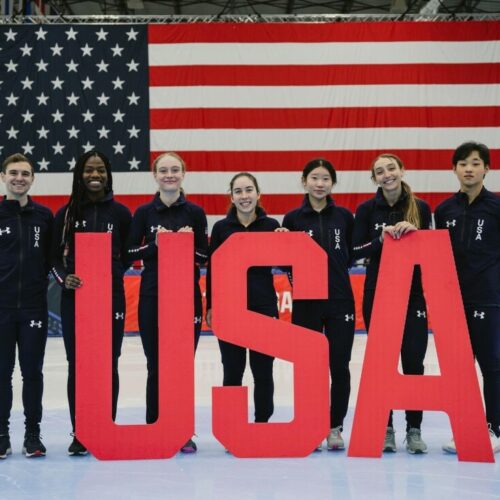
These Athletes From The Northwest Are Going To The 2022 Winter Olympics
The presence of eleven skiers, skaters and sliders with ties to the Pacific Northwest should add intrigue to the 2022 Beijing Olympics, although the upcoming sports spectacle beset with extreme COVID precautions, a diplomatic boycott and scarce snowfall hardly needs more drama. Several late additions to the Team USA Olympic roster upped the regional representation at next month’s Winter Games to similar levels as in past editions.
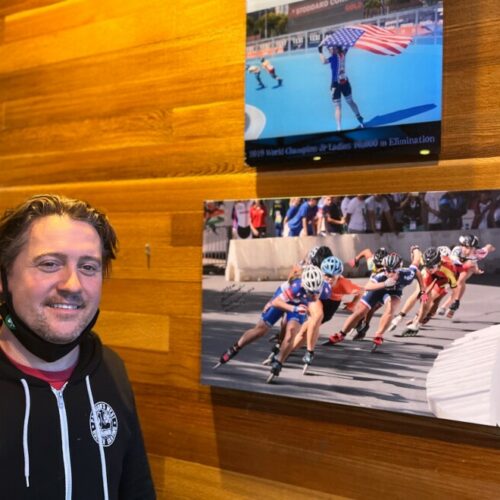
Pipeline Of Short Track Speedskaters From Washington To Olympics Grows Longer
A roller skating rink in Federal Way, Washington, has a remarkable track record of minting future ice skating Olympians. It started in the 1990s and 2000s with four-time Olympic long track speedskater K.C. Boutiette and short track gold medalist Apolo Ohno. The streak will extend to an eighth consecutive Winter Olympics when a new short track speedskater on Team USA named Corinne Stoddard steps to the start line in Beijing next month.
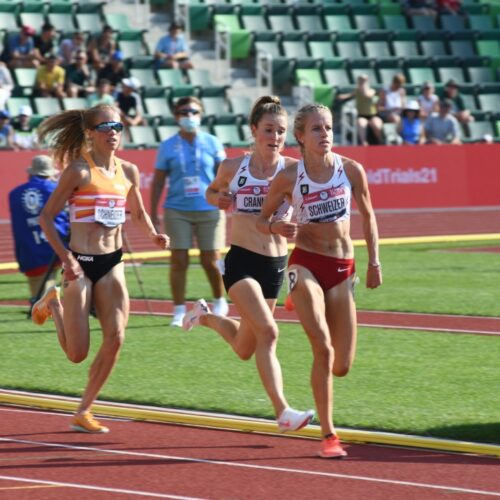
‘Dangerously Hot’ Temps Force Schedule Changes At Olympic Trials In Eugene
The broiling heat in the weekend forecast is forcing changes at the U.S. Olympic Track and Field Team Trials underway in Eugene. Distance races are being shifted earlier in the day, but shorter events are staying put on the schedule in the peak afternoon heat.

